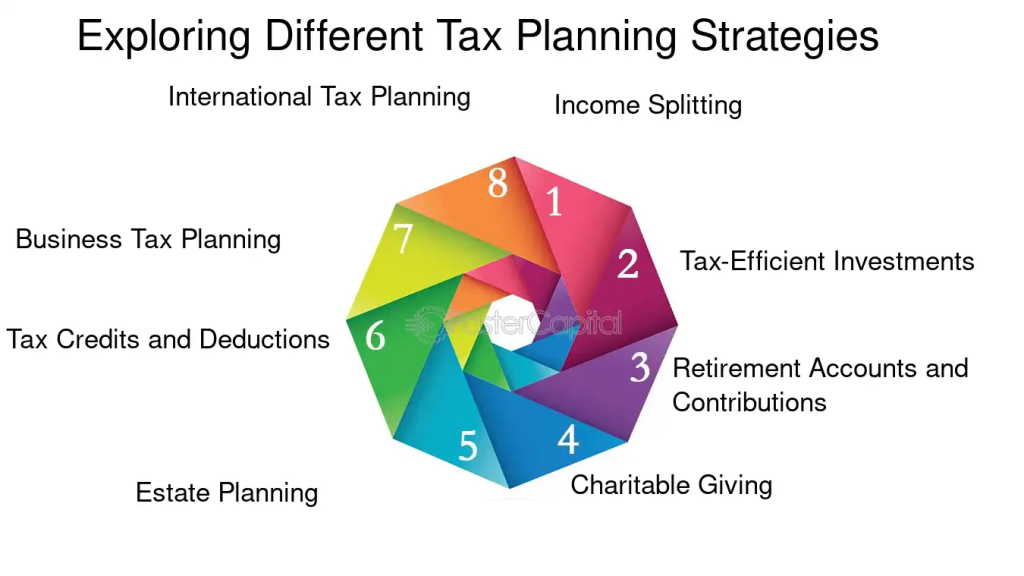Local (European-Specific) Content : Tax Implications of Real Estate Investing in Europe
Στόχοι Μαθήματος:
- Understanding Capital Gains Tax is crucial when buying and selling real estate in Europe. You’ll learn how different countries like Γερμανία, Γαλλία, και το U.K. apply capital gains tax, and how factors like holding periods can lead to exemptions ή reduced rates.
- Δομή οντοτήτων can lower your tax burden and protect your assets. This section explains how legal structures like holding companies ή REIT-like entities (such as SOCIMIs in Ισπανία) can be used for tax advantages in countries like Λουξεμβούργο, the Netherlands, and beyond.
- Using Tax Deductions effectively can significantly reduce your taxable income. You’ll learn about common deductions for mortgage interest, maintenance, και υποτίμηση available in many European countries.
- Deferring Capital Gains Taxes is possible in some countries when reinvesting in similar property. You’ll explore options similar to the U.S. 1031 exchange in places like Γαλλία, and how to use them to delay paying taxes.
- Optimizing Holding Periods helps reduce or eliminate capital gains taxes in countries like Γερμανία και Γαλλία. You’ll learn how long-term ownership can provide major tax benefits.
17.1 Tax Implications of Real Estate Investing in Europe
Capital Gains Tax in Europe
Capital gains tax is a critical consideration for real estate investors when selling a property. In Europe, the tax rate on capital gains varies significantly between countries, and certain conditions can offer exemptions or reduced rates.
- Γερμανία: In Γερμανία, capital gains tax does not apply to properties held for more than 10 years, making long-term investments a favorable option for tax efficiency. However, if the property is sold within 10 years of purchase, the gain is taxed at the investor’s personal income tax rate.
- Γαλλία: In Γαλλία, capital gains from real estate are subject to a flat rate of 19%, plus social security contributions. However, a series of reductions apply if the property is held for more than five years, with full exemption after 30 years.
- U.K.: In the U.K., capital gains on property are taxed at 18% for basic-rate taxpayers and 28% for higher-rate taxpayers. Investors can take advantage of an annual capital gains tax allowance that reduces their taxable gains.
Entity Structuring in Europe
Investors in Europe often use entity structuring to minimize tax liabilities and protect assets. Forming a legal entity, such as a corporation, limited liability company (LLC), or holding company, can provide significant tax advantages depending on the country’s laws.
- Λουξεμβούργο: Luxembourg is a popular jurisdiction for setting up real estate holding companies due to its favorable corporate tax rates and exemptions for capital gains and dividends. Investors with large property portfolios often use holding structures in Luxembourg to optimize tax benefits.
- The Netherlands: In the Netherlands, real estate investors can form BV (Besloten Vennootschap) entities to hold properties, allowing them to take advantage of lower corporate tax rates and benefit from tax deferral on rental income.
- Ισπανία: In Ισπανία, forming a SOCIMI (Sociedad Cotizada de Inversión en el Mercado Inmobiliario), similar to a REIT, allows property owners to benefit from reduced corporate tax rates and exemptions on capital gains if they meet certain conditions, such as distributing 80% of rental income to shareholders.
Εικόνα: Capital Gains Tax Rates in Europe (2024)
Περιγραφή:
This map illustrates the top capital gains tax rates on individuals across 35 major European countries in 2024. Each country is color-coded based on its maximum rate, ranging from 0% to 42%. Countries like Denmark and Finland feature the highest rates (42% and 37.8%, respectively), while others like several Eastern European nations impose no capital gains tax (0%). The map provides a comparative visual of tax policy differences across the continent.
Βασικά συμπεράσματα:
- Denmark has the highest capital gains tax rate at 42%, followed by Finland at 37.8%.
- Eastern European countries, including countries like Slovakia, Hungary, and others, have no capital gains tax (0%).
- Western Europe, including countries such as France (34%), Germany (26.4%), and Spain (28%), generally imposes moderate to high capital gains taxes.
- Variations in tax policy reflect differing approaches to wealth taxation and economic policy priorities.
- Southern European nations like Greece (15%) and Italy (26%) fall in the mid-range, offering relatively competitive tax environments.
Εφαρμογή πληροφοριών:
This map is crucial for investors and individuals looking to optimize their investment strategies and portfolio management in Europe. Understanding these tax policies allows them to make informed decisions on where to realize capital gains. For policymakers, it highlights regional competitiveness and helps assess their tax policies in a European context.
17.2 Strategies for Minimizing Taxes in Europe
Επωφεληθείτε από τις φορολογικές εκπτώσεις
European tax systems offer various deductions for real estate investors that can significantly reduce taxable income. Understanding and utilizing these deductions is key to optimizing returns.
- Τόκοι στεγαστικού δανείου: In countries like Γαλλία, Γερμανία, και Ιταλία, investors can deduct mortgage interest payments from their taxable income, reducing the overall tax burden. This is particularly advantageous for highly leveraged properties.
- Συντήρηση και επισκευές: Investors can claim deductions for expenses related to maintaining and repairing their properties. In the U.K., for example, routine maintenance costs, such as painting, plumbing, and roof repairs, are fully deductible, while significant upgrades are capitalized and depreciated over time.
- Υποτίμηση: Many European countries allow investors to depreciate the value of their buildings over time, which reduces taxable income. In Γερμανία, the depreciation rate for residential buildings is set at 2% annually for a 50-year period, while in Ισπανία, investors can claim depreciation for 3% annually on buildings used for rental purposes.
Utilize a 1031 Exchange Equivalent
In some European countries, investors can defer capital gains taxes by rolling over the proceeds of a property sale into a similar investment. While there is no direct equivalent to the 1031 ανταλλαγή available in the United States, several European countries have provisions that allow for tax deferral under certain conditions.
- Γαλλία: In Γαλλία, investors may defer capital gains taxes when reinvesting the proceeds from the sale of a property into a primary residence or similar type of property. This deferral is especially useful for those seeking to upgrade their property portfolio without incurring immediate tax liabilities.
Βελτιστοποιήστε την Περίοδο Διατήρησής σας
In Europe, many countries offer reduced or exempt capital gains taxes for properties held over a long period, making the holding period a crucial factor in tax minimization.
- Γερμανία: Holding property for at least 10 years exempts the owner from capital gains taxes, providing a strong incentive for long-term investments.
- Γαλλία: Holding a property for more than 30 years makes it exempt from both capital gains taxes and social security contributions, providing a significant tax break for long-term investors.
Συνεργαστείτε με φοροτεχνικό
European real estate tax laws are complex and vary by country, making it essential to work with a tax professional who understands local regulations.
- Local Expertise: A tax advisor based in Ισπανία, for example, will be familiar with the country’s specific tax codes, such as SOCIMI regulations, and can provide tailored advice on structuring investments to maximize tax benefits.
Εικόνα: Exploring Different Tax Planning Strategies
Περιγραφή:
This image outlines eight key tax planning strategies represented in a colorful, circular design. These strategies include International Tax Planning, Income Splitting, Tax-Efficient Investments, Retirement Accounts and Contributions, Φιλανθρωπική προσφορά, Estate Planning, Φορολογικές πιστώσεις και εκπτώσεις, και Business Tax Planning. Each strategy emphasizes different aspects of financial and tax optimization to help individuals and businesses minimize tax liability and maximize savings.
Βασικά συμπεράσματα:
- Tax-efficient investments focus on reducing tax obligations through tools like tax-free accounts or low-tax investment vehicles.
- Income splitting can redistribute income among family members to lower the overall tax burden.
- Charitable giving offers tax deductions while supporting meaningful causes.
- Retirement contributions to tax-advantaged accounts secure both future savings and immediate tax benefits.
- Estate planning ensures a tax-efficient transfer of wealth to beneficiaries.
- Business tax planning and leveraging tax credits/deductions optimize corporate tax liabilities.
Εφαρμογή πληροφοριών:
Understanding these strategies empowers individuals and businesses to make informed financial decisions while minimizing tax obligations. Investors can utilize tools like retirement accounts or tax-efficient investments, while businesses may explore deductions or credits for operational expenses. These strategies are essential for building sustainable financial plans and achieving long-term financial goals.
Βασικές πληροφορίες μαθήματος:
- Capital Gains Tax Rates differ across Europe. Countries like Γερμανία offer full exemptions after 10 years, while Γαλλία reduces taxes over time with full exemption after 30 years. In the U.K., rates depend on income level. Knowing these rules helps investors decide when to sell to minimize taxes.
- Δομή οντοτήτων provides tax efficiency and asset protection. Setting up a holding company in places like Λουξεμβούργο or a BV in the Netherlands can help defer taxes and lower overall liability. In Ισπανία, SOCIMIs offer tax advantages if certain conditions are met.
- Φορολογικές εκπτώσεις such as mortgage interest, maintenance costs, και υποτίμηση are widely available across Europe. These deductions help investors lower taxable income, improving their bottom line—especially in countries like Γερμανία, Ιταλία, και το U.K.
- Deferring Capital Gains Taxes is possible in select countries. For example, Γαλλία allows deferral when reinvesting in certain types of property. While not identical to the U.S. 1031 exchange, these provisions help investors grow their portfolio without immediate tax penalties.
- Holding Periods Matter. Σε Γερμανία, holding a property for 10 years exempts you from capital gains tax. In Γαλλία, full exemption applies after 30 years. Long-term ownership can lead to substantial tax savings, encouraging strategic investment planning.
Τελική δήλωση:
Tax laws in Europe vary widely, but with the right strategies and local knowledge, investors can reduce their tax burden, increase profits, and avoid costly mistakes. Understanding how to plan for taxes is just as important as choosing the right property.



